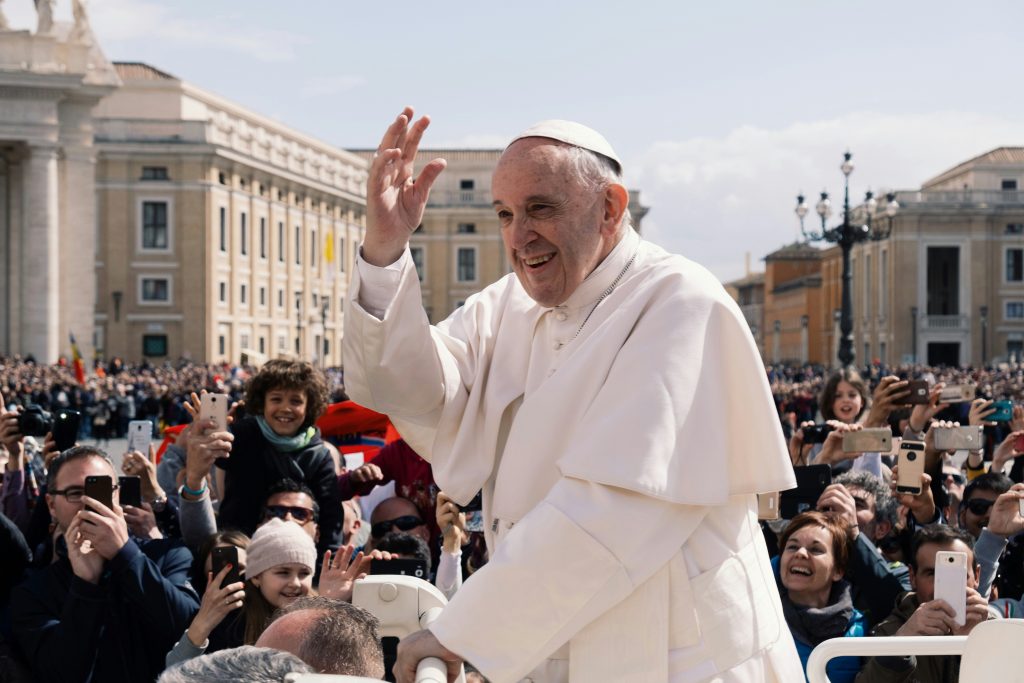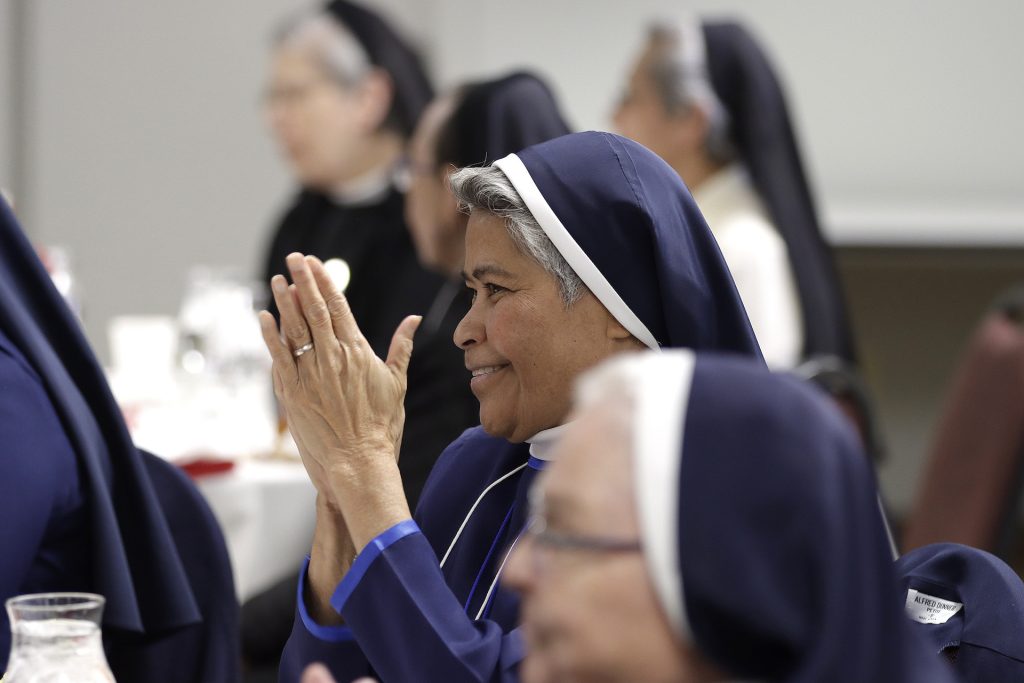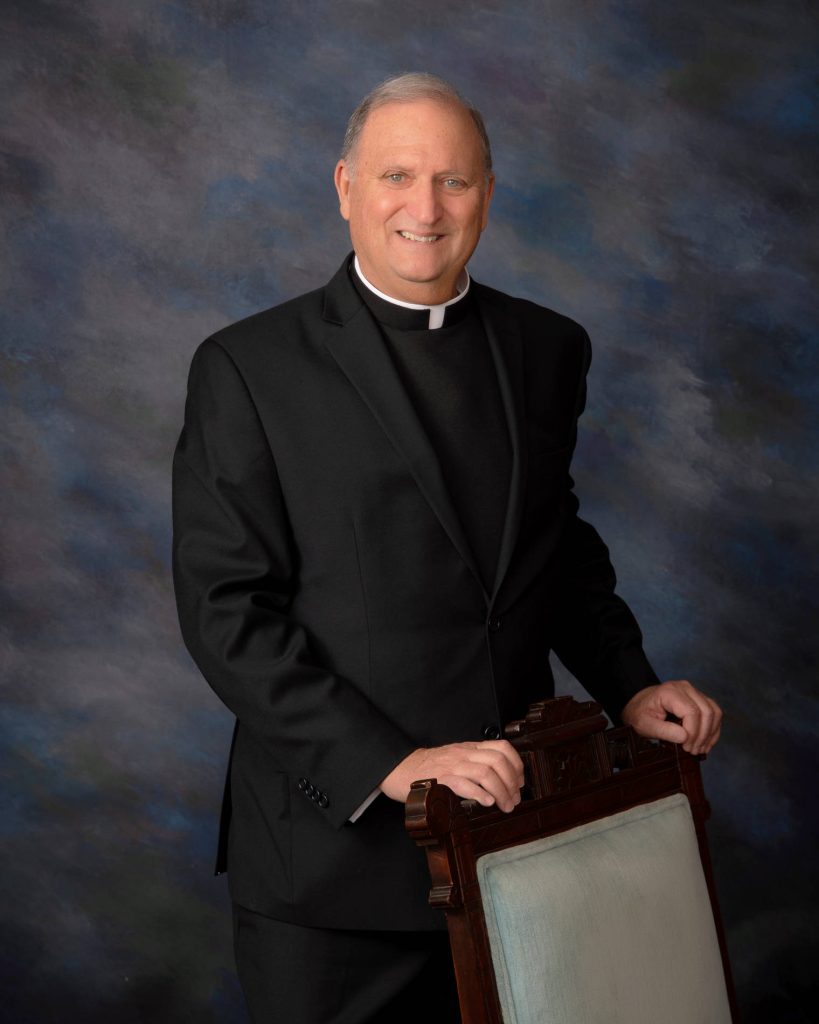SAN DIEGO — Within the span of two weeks, Father Nicholas Clavin marked two major milestones: the 50th anniversary of his priestly ordination and the beginning of his retirement from active ministry.
What does it mean to him to know that he has been a priest for more for a half-century?
“Oh, gracious me,” the 72-year-old replied in his thick Irish brogue, “I always am of the opinion (that) to do anything for 50 years is quite an achievement – in other words, to stay the course. I thank God for my family and for the good health to have been able to survive and to serve.”
Born in Rahan, County Offaly, Ireland, Father Clavin grew up in a Mass-going family in which “priesthood was held in the highest esteem.”
There were other priests in the family, including a great-uncle and an uncle. As a child, he would see photos of “all those high-power priests” hanging as “kind of a rogue’s gallery” on the wall of the family home and would wonder, “How will I ever get up on that wall?”
By about age 16, Father Clavin knew that he wanted to enter the seminary.
In 1966, he entered All Hallows College. He was ordained on June 17, 1973, in Drumcondra as a priest for the Diocese of San Diego.
Father Clavin describes himself as part of “a long tradition of Irish missionary priests” that his seminary sent to parts of the world with sizeable Irish immigrant populations. He followed in the footsteps of his uncle, Msgr. Billy Clavin, and a cousin, Father Donal Walsh, both of whom were already ministering in San Diego when he arrived.
From 1974 to 1984, Father Clavin served as associate pastor at a succession of parishes, including Sacred Heart Parish, San Diego; St. Kieran Parish, El Cajon; and St. Mary Parish, Escondido.
He served as director of the diocesan Office for Clergy and as a faculty member at St. Francis Seminary between 1984 and 1988.
Father Clavin became a pastor for the first time at Holy Trinity Parish in El Cajon, where he served from 1988 to 1989. Though not a long assignment, it was challenging and educational.
“We didn’t have a nickel to rattle on a tombstone. We were poor and in debt,” said Father Clavin, who worked to build community at the parish.
“I was challenged to discern the gifts because that’s where all the gifts were: They were out in the pews and not in the pulpit,” he said, sharing that, through their efforts, the parish almost tripled its offertory collection.
Father Clavin subsequently served as pastor of St. Vincent de Paul Parish in Mission Hills, beginning in 1993, and of St. Gregory the Great Parish in Scripps Ranch, from 2005 until his retirement in July of this year.
At St. Gregory the Great, he faced the challenge of overseeing the founding of the parish school, which opened and welcomed its first students in 2009.
“There wasn’t even a road into the place when I went there,” he recalled.
“I guess the key to it all … was that Christ was the reason for a Catholic school,” he said. “So, in that sense, we really felt that we were doing God’s work, and we were God’s workers, and the hand of God was on us.”
In retirement, Father Clavin hopes to continue being of service by celebrating Sunday Masses “wherever I’m needed.”
What advice does Father Clavin have for younger men who feel they might have a calling to the priesthood?
“I guess the first thing I would say is, ‘Pursue it. Don’t just think about it.’ … It’s not the end of the world if you find out it’s not the life for you. But at least you will have raised the questions and (seen) where God is guiding your life.”
He recalled the words of a spiritual director at his seminary, who would often remind the seminarians that “the world needs good laymen.”
“The world needs good laymen,” concurred Father Clavin, “but the world also needs vocations to help the Church along the way.”









